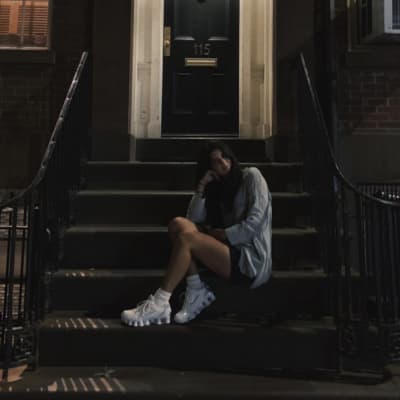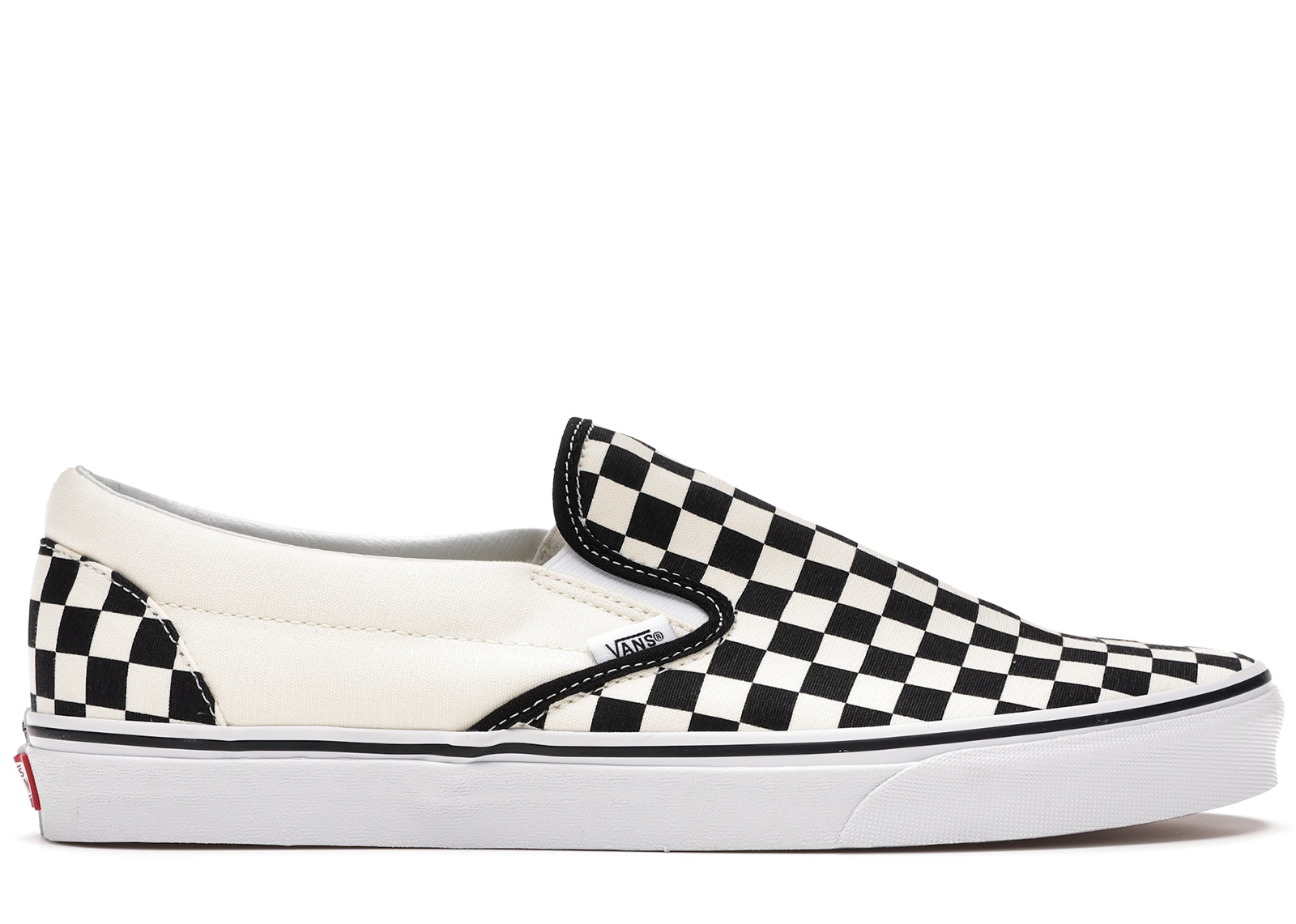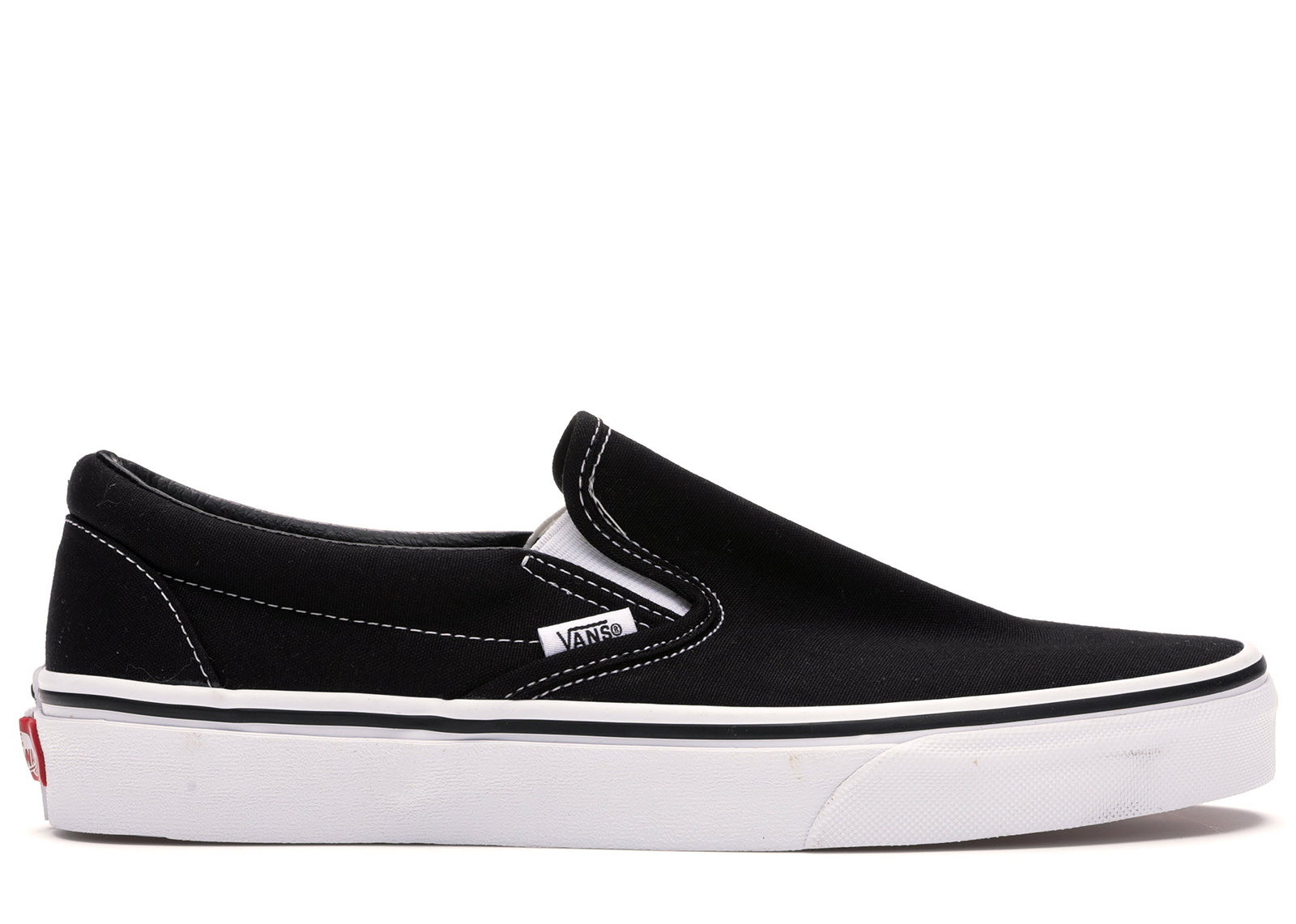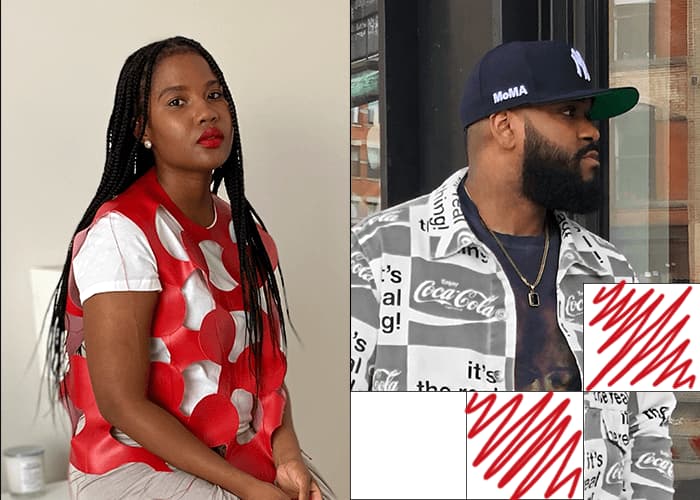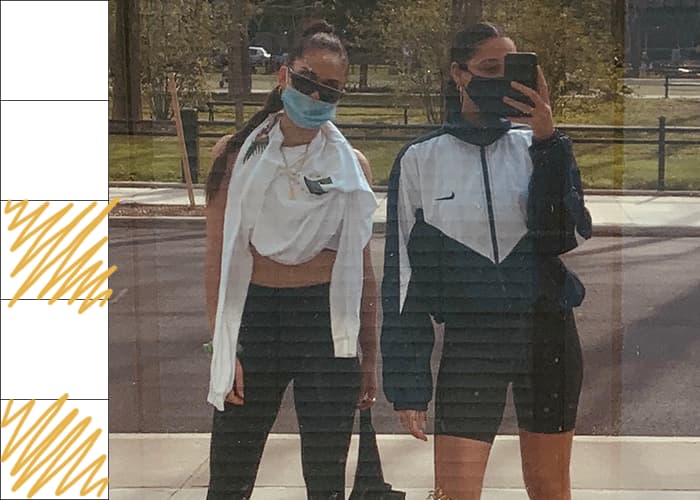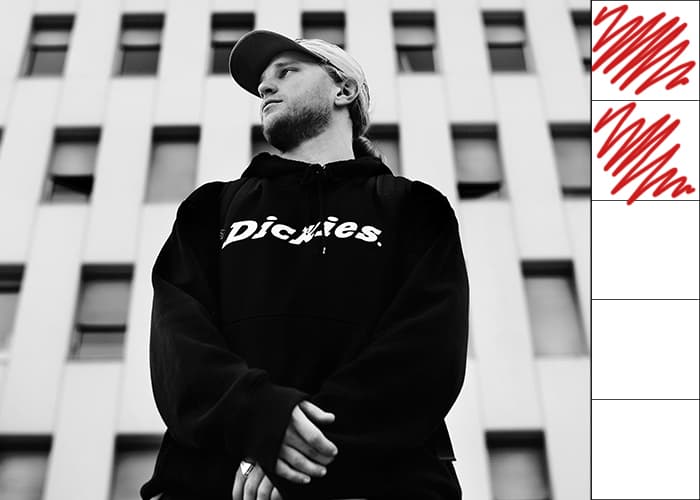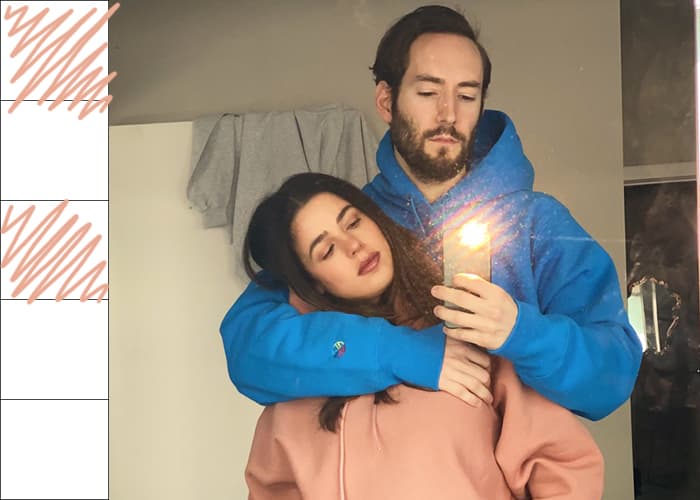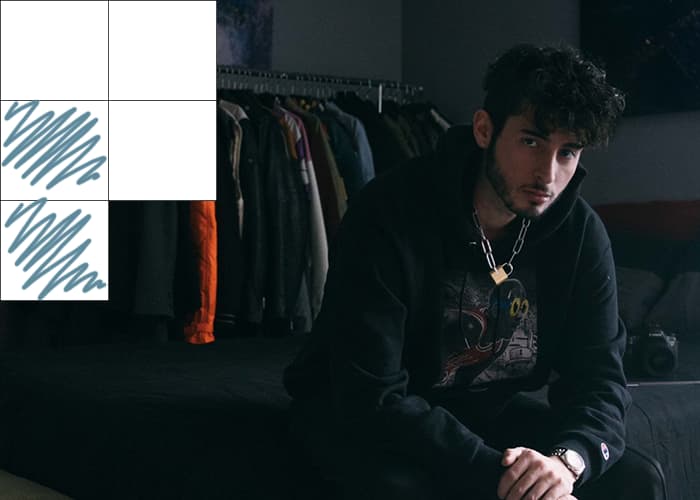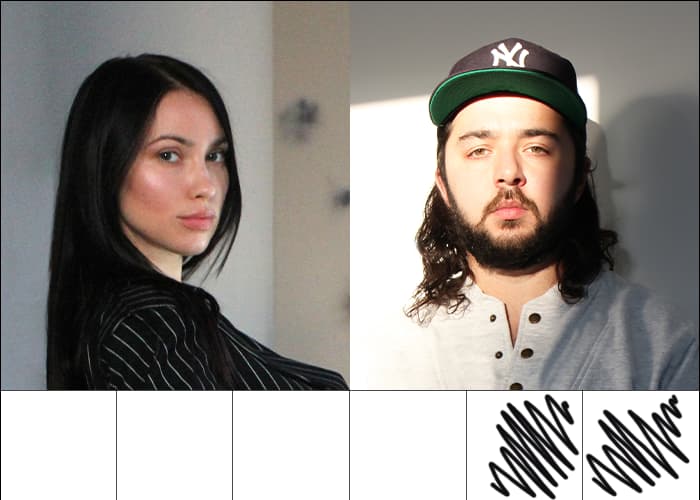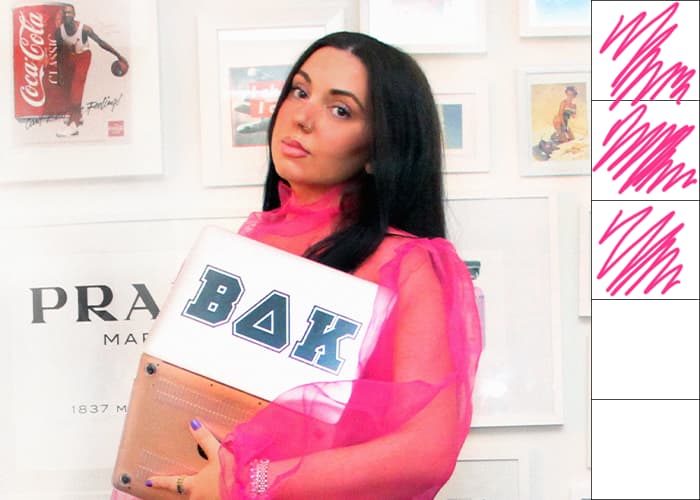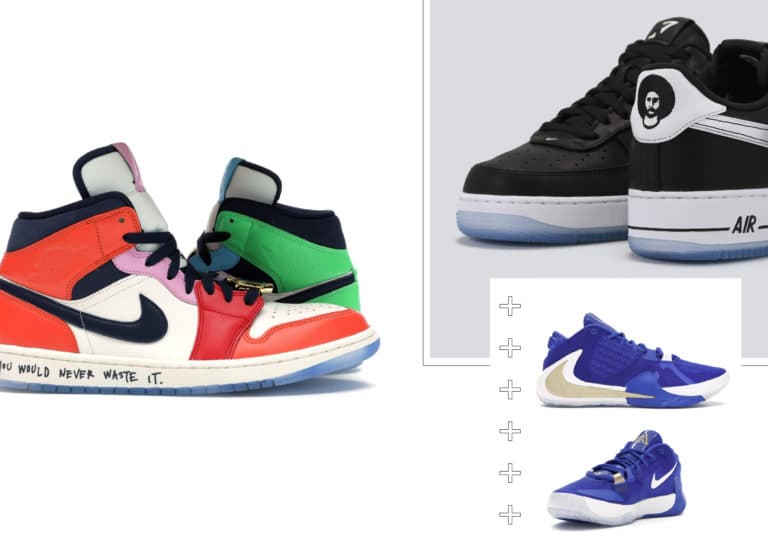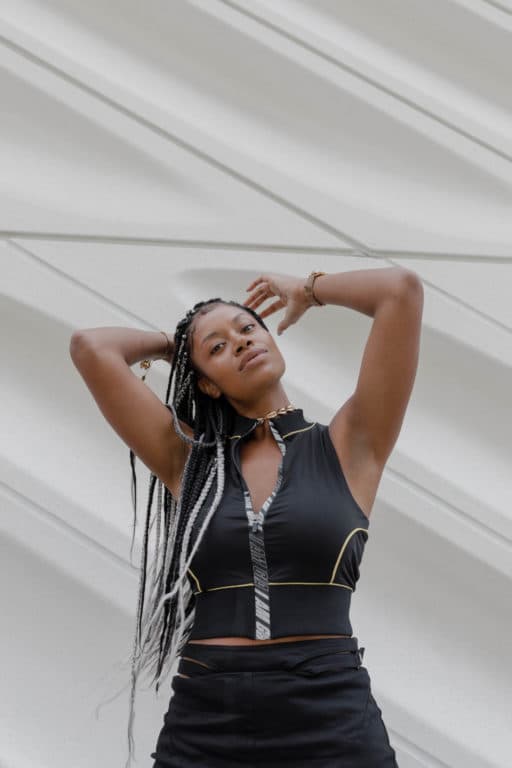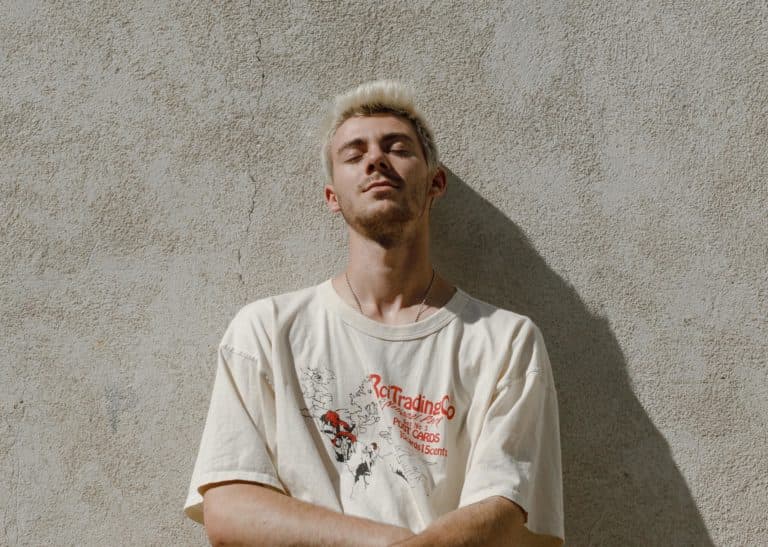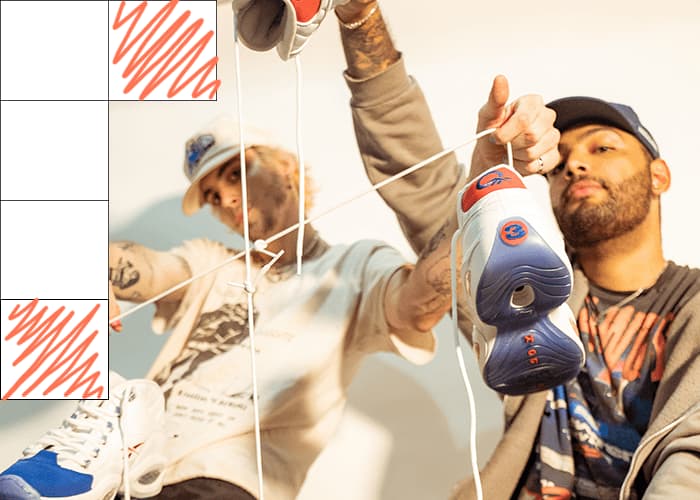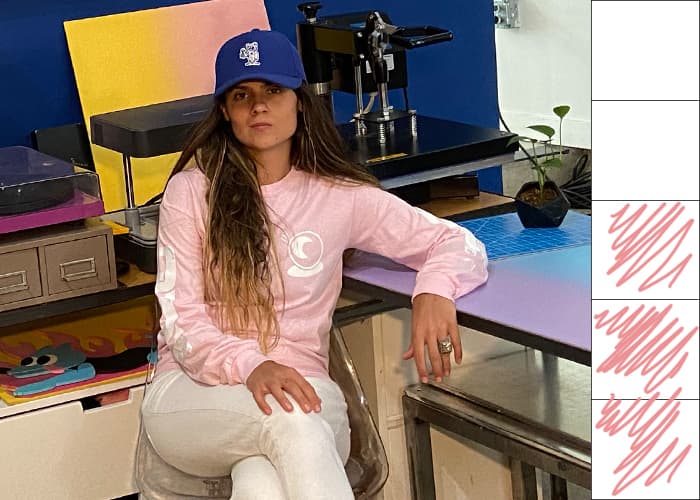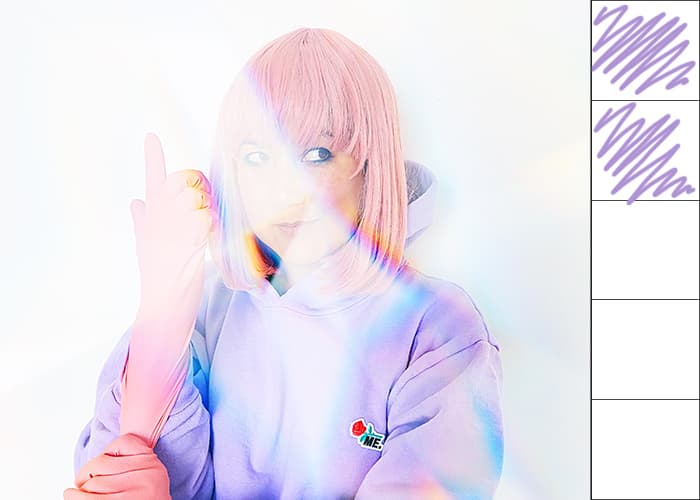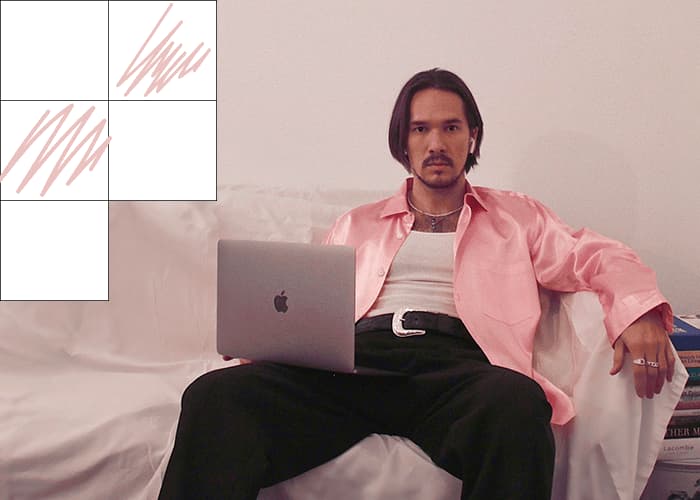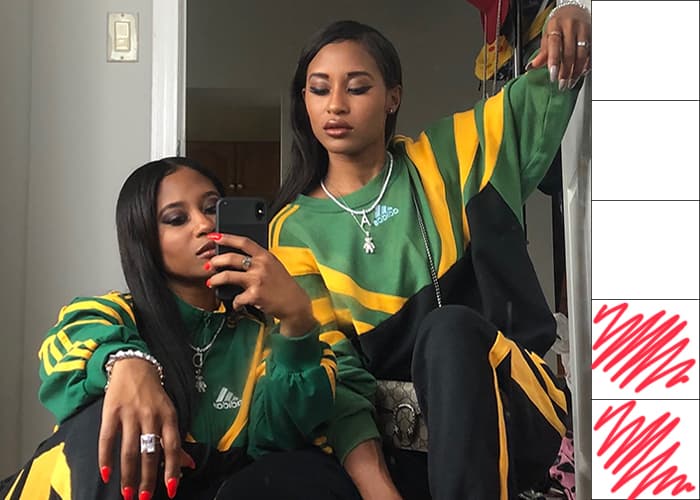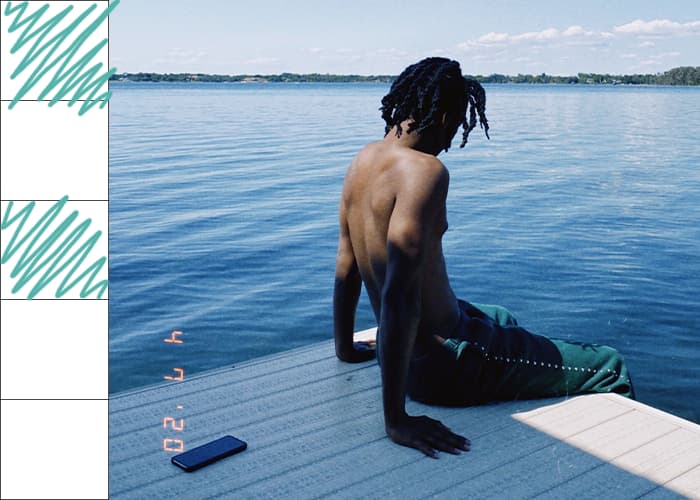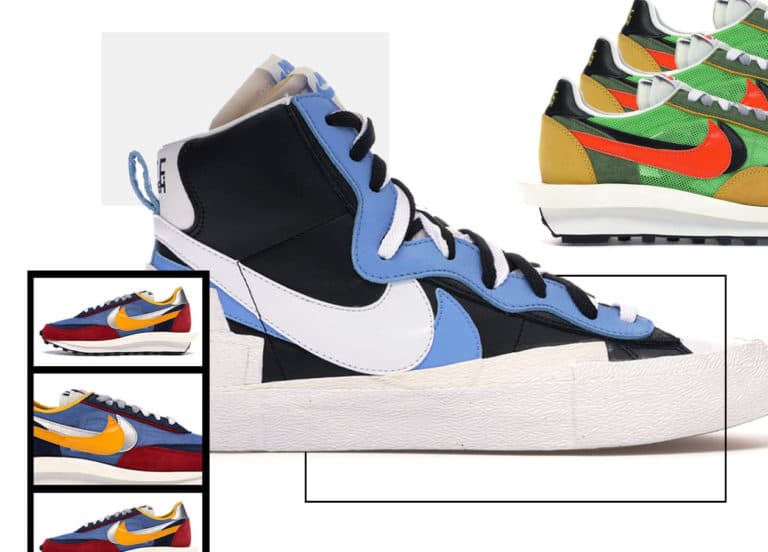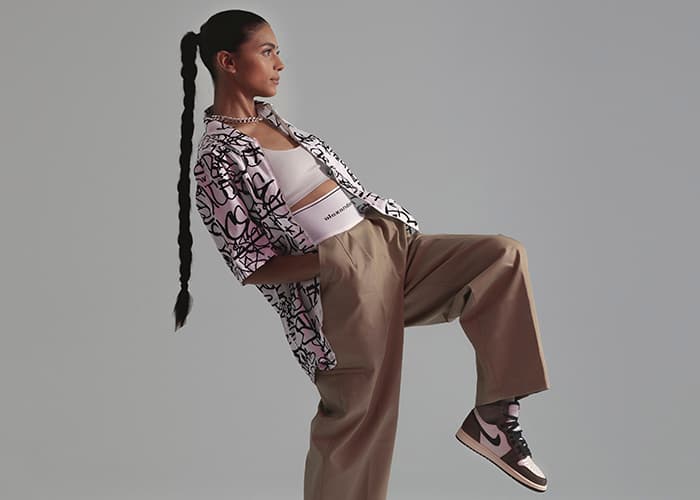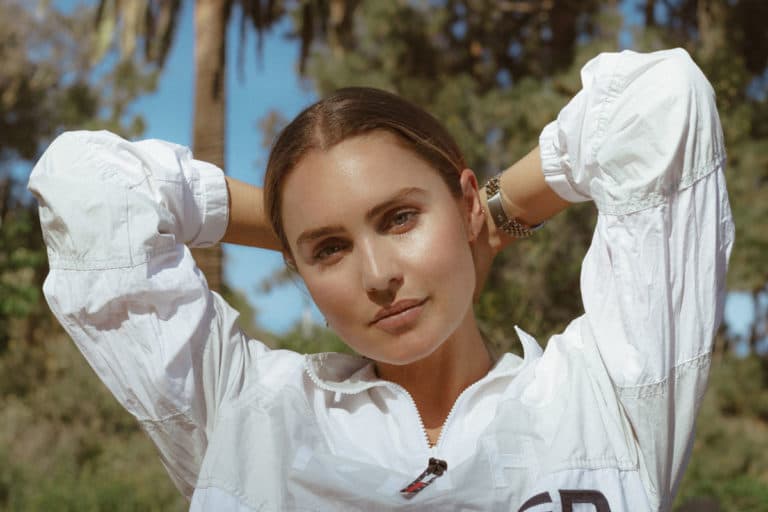
Editor’s Note: Los Angeles-based skateboarder and model Andrey Tarasov invited the StockX team to try and keep up with him for the day from the streets of DTLA to El Sereno Skate park. Born in Moscow, Russia, and raised in Atlanta, Georgia, he picked up his first skateboard at eight years old. Fast-forward to now, Andrey is signed to LA Models and holds sponsorships with Vans, Stereo Skateboards, and Kingswell Skate Shop. The StockX team sat down (or skated) with Andrey to get an inside glimpse into his own world of skateboarding, his aspirations beyond it, and how he continues to claim public space as his own personal space.
Note: This interview has been edited for clarity and brevity.

Ari Nonahal, StockX: Should we start with an introduction?
Andrey Tarasov: My name is Andrey Tarasov and I am a skateboarder, or something like that. ::laughs:: We are at El Sereno skate park in Los Angeles, and it’s looking a bit packed. I come here when it’s prime school hours so I’m not bumping into kids. I was born in Moscow, Russia and my parents always wanted to move to the states. We had some family and friends in Atlanta, so I moved there when when I was three. I started skating when I was eight. I’d always wanted to move to Los Angeles to pursue skating and more creative ventures. Skating here is so embedded in the culture and I wanted to be a part of it, so I moved here when I was 18.

Ari: How did you originally get into skateboarding?
Andrey: Skateboarding kind of showed up on my doorstep when my grandma sent a skateboard to my house. What really sparked it for me was actually playing Tony Hawk video games when I was eight years old and wanting to try some of those tricks. I got addicted as soon as I tried an Ollie. It was just super fun right away, and I liked that it was challenging. It sparked because it was just so different from what the kids were doing at school and it was a whole world inside of the world I lived in. I was like, “Oh my God, this is so cool. I want to be a part of it.” I wouldn’t say Tony Hawk has been a huge influence on me, but I do really look up to the fact that he’s been able to use skateboarding in so many different ways. If it wasn’t for him, I don’t think skating would be where it’s at today.
Ari: Who are some of the people that have influenced you and why?
Andrey: A person I’ve always been really influenced by was Dylan Rieder. When I was 15, I saw his skateboarding footage and he just made it look so different from everything I was seeing at the time. Everything was kind of saturated with contest footage. How much can you have of that until it’s kind of boring? He put a really good twist to it. I’m always stoked on Ben Nordberg‘s footage too, who’s a buddy of mine now and really good at skating. He has always been able to carry it with a cool style and make skating look a little bit different from what it is. I really respect people that have something more going on than just being a great skateboarder, like Mark Suciu who finished college recently.

Ari: What’s your favorite trick at the moment?
Andrey: I love a good treflip on flat ground. Backsmiths are super fun to grind on a ledge. It’s just such a nice feeling trick and you can really showcase style with it or a backtail on transitions really fun too. Impossibles are definitely one of my favorite tricks too. I need to stop doing them so much. I tried Ollies for ages, got one, and then I think I learned the pop shove-it in the grass. I had my board in the grass and would try to scoop it, and jump up high enough to land it. It took months of shinners but I finally got it and then landed in the streets. From there, I learned 50-50s on rails like ollieing over rails into a 50-50 grind, which is kind of gnarly. I probably wouldn’t do that now, but I think it was one of the first things I learned.
Ari: Can you elaborate a little more on the skate scene in Los Angeles at the moment?
Andrey: The skate scene in LA is a bit oversaturated. A lot of people skate but it’s just a little bit too much going on and a bit overwhelming. The competition of skating in Los Angeles is cool because everyone is progressing. It’s somewhat of a community and people all know each other. I’ve never seen anywhere in the world where skating is as popular as it is here, but skateboarding is a common language. When I go to different country, that’s the language that we speak. Sometimes I wouldn’t even be able to talk to people in their tongue but can speak to them through skating, which is quite cool.

Ari: What are the reasons that bring you back to skating?
Andrey: Skating is my own world. I can tune out and not really think about what I have going on. It’s its own stress but it’s a stress I want to have. If you’re trying a trick for a while, there’s no way you’re going to leave that trick until you’ve landed it. It’s like you’re in this tunnel vision. Skating is just super fun, you meet a lot of people and it’s just really enjoyable.
Ari: You’re making connections and it’s also self-discipline.
Andrey: Yeah, for sure. It’s so interesting. You just tune out when you’re in this own world of yours.
Lizzie Kassab, StockX: No matter where you go, skateboarding can have this connotation of taking over of public space. How do you see that as far as you claiming it as personal space for yourself? When you think about skateboarding, everybody sees it as this kind of rebellious thing taking over, but with it you’re also able to make anywhere a personal space for you.
Andrey: Skateboarding is so accessible. I’ve heard about kids on my high school $500 to join a sports team. With skateboarding, you can get a skateboard for a reasonable amount of money and join a whole world. It’ll change who you are. You’ll never look at a stair set the same. I was just recently in Copenhagen and I heard that after architects are done designing a building, they’ll ask skaters to help make the fronts of buildings because they appreciate skateboarding instead of pushing it away. They understand people are able to make a living off of it and are able to create content around it. It could benefit skateboarding if more people were able to look at it that way.

Ari: How do the connections you make with people in skateboarding influence you? You’ve mentioned it humbles you and there’s always something to learn from others in the midst of it.
Andrey: Skateboarding is an industry that teaches you to be humble because you are universally around so many people. Whenever you’re on a skateboard, there is no hate. Everyone is just on skateboards and cool to each other. It’s not discriminatory.
Ari: So skating has influenced you in a really positive way?
Andrey: Yeah and the cool thing about the connections you make with skating is you go to the skate park and maybe someone there works at Vans. You interact with all these people that you probably wouldn’t meet through an internship through college. You’re just skating with them and you don’t think twice about it.
Ari: Right, there’s a sense of community.
Andrey: For sure. When you’re at a skate park and you see the best pro from when you’re a kid, you’re just skating with them. You’re not asking them for a million photos, you know they’re there and they’re just a person too.

Lizzie: Do you think the culture is just inherently that way? It’s almost like an equalizer?
Andrey: I think it is. I mean there’s obviously big names in skating, but skateboarding is humbling to the point where people are just doing their own thing. You realize that so you have to respect it for sure.
Lizzie: So being someone who’s constantly spending time and claiming public space, how would you define personal space when you’re spending a lot of your personal time outdoors?
Andrey: Skateboarders are able to take personal space in a really cool way in the public because they will be able to skate a ledge that normal people wouldn’t even look twice at, or spend hours beating themselves up over a stair set. So if they want to do that, why not? Because they’re able to just like do something that normal people wouldn’t even look twice at. In a way that is a type of art, to be able to see something that doesn’t normally exist for normal people and make it something that is bigger than that.

Ari: That’s a really good way to put it.
Andrey: Yeah, because everybody sees a stair set and they’re like, oh cool, whatever. But when you’re a skateboarder you’re like, “Oh my God, I could do a million things with this.” Kind of forward thinking in a way, you know? You never look at anything the same again. A curb could be a whole day for you. You’ll never be bored with a skateboard.
Ari: Switching over to your modeling career, how did that come about?
Andrey: Like I said, Dylan Rieder always influenced me. When I saw what he was doing with fashion, I wanted to make my own world of that and do something similar. I was really influenced by the way he skated, carried himself, and modeled. He continues to always be super cool to me. When you’re skating, you’re always around photographers, there’s a huge opportunity for crossover into the creative world. I knew I wanted to go in that direction so I was able to merge the two interests.
Ari: Between modeling and skateboarding, how do each of those balance you?
Andrey: I think it’s really great that skateboarding is able to affect my life the way it does and modeling really separates a person in that world. For instance, you go to a casting and you don’t even think twice about it. You’re able to be yourself and you’re not just worried the whole day like, Oh, did I get that job? And you don’t think about that. You’re just like, I’m just going to go skate or get my mind right, and move onto what’s the next thing. So you just got to keep moving or else you’re stagnant.
Ari: Earlier in the day you mentioned you would not have found one without the other?
Andrey: I wouldn’t have found modeling without skateboarding. I was able to grow up skateboarding but at the same time I’ve realized how to further my modeling career and I don’t think I would’ve realized how to do that without it.
Ari: Do you look at skateboarding as a form of expression?
Andrey: Skateboarding is such an aesthetic thing, it’s such an art form – you really see things differently forever. When you grow up skating, you watch skate videos and you’re like, “Oh, I understand the rule of thirds” – but you don’t even know what the rule of thirds is when you’re 10. You’re unknowingly taking in all of this inspiration. When I see someone skateboarding, what sticks out to me right away is their style, the way they do what they do. Not the athletic side of it. I hope that no skateboarder is doing it just to be like “yeah, I’m going to be so fit after skating,” because it should really just be about expressing yourself. I feel like skateboarders are able to show off with their style instead. Like you don’t skate for a workout, you know? Looking at Mark Gonzalez, who’s 50 – he’s not the top skateboarder in athletic terms, but his tricks are more relevant than someone jumping down a 30-stair. These people are real artists – the creative work you put in, it’s going to carry you forever and have way more longevity than a big trick.

Ari: When you look at pro skaters and the way they’ve taken their careers beyond just skating, where do you see yourself taking your own?
Andrey: I want to skateboard for as long as I can. It’s how I express myself and it’ll forever be a part of me, but I don’t want to worry myself about making money off of it. I’m able to work in modeling, assist with photography, take photos, and do what I can for work. I’m currently studying marketing and aspire to work in the creative industry one day. I want to be connected to industries I feel really passionate about and definitely focus more on art or photography. I’ll see where it goes. Right now I feel confident about the direction I’m going in.
Ari: What’s something you want people to know about you as your career grows?
Andrey: Something that’s important to me is my family and friends, I love them. At the same time I want people to know that I wish to see the world in a more progressive and eco-friendly way. I’m really hoping to be apart of that change in the future.

AN: That’s great. Have there been any projects that have been super meaningful to you?
Andrey: I recently got to do an interview with Boys By Girls magazine from the UK. It was an editorial, but they really allowed me to use my own voice and I was able to talk about some of things I believe in. I don’t normally get involved in projects that I’m not passionate about.
Lizzie: What’s your motivation behind the choice to be more of a minimalist in your style and skateboarding career?
Andrey: What’s important to me when I ride a skateboard is to showcase style and do the tricks that I want to do. I’m not necessarily focusing on being the most sponsored skater. I just want to do it the way I want to see it. So if people don’t like it, I don’t mind. I don’t care. I appreciate what I do. So if it’s “minimal” but looks like I want to do it, that’s what I’m into. The motivation is always genuine. It’s always me.




